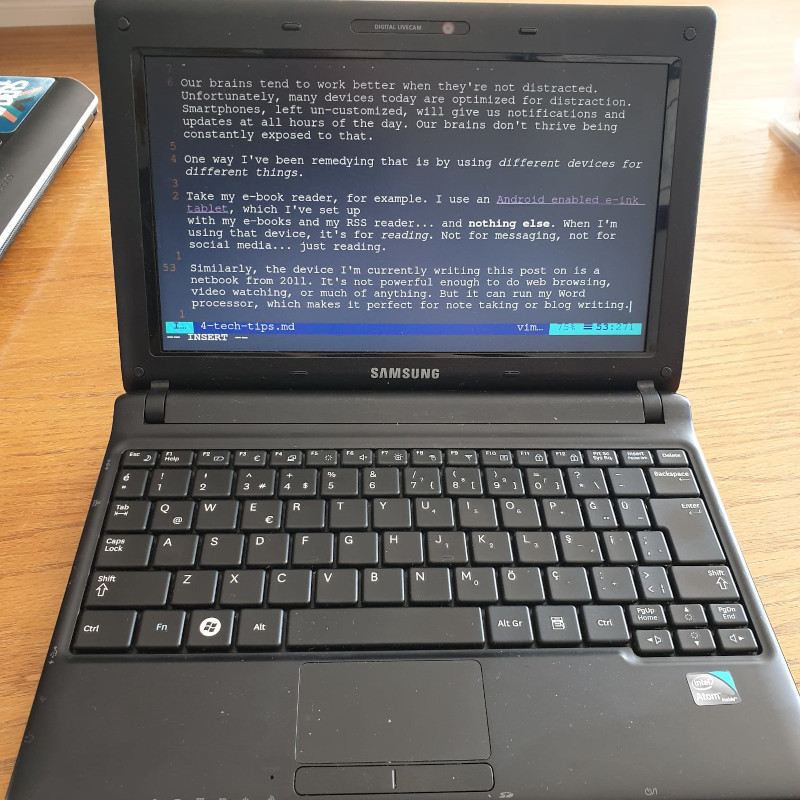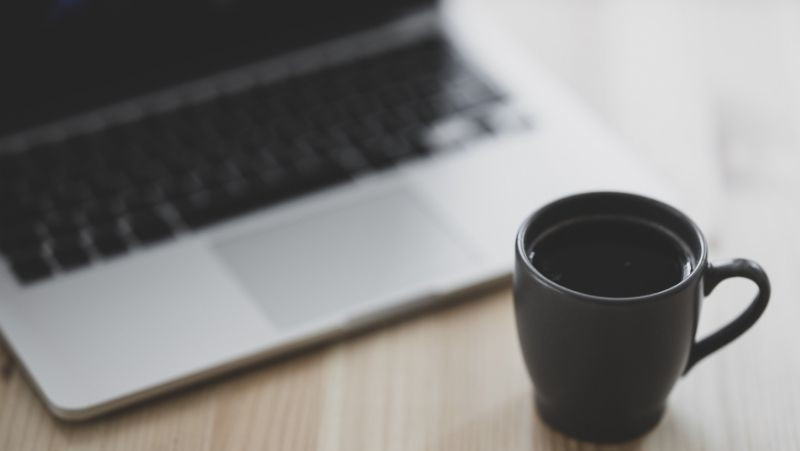Lately I feel like I’ve come to a place with internet and tech usage that I’m really liking, where I’ve been able to derive great value from what the internet has to offer, while being better at protecting myself from some of its more poisonous elements.
Here are a few tools/tips that I’ve found helpful for coming to that place, which I think anyone who uses the internet could benefit from:
1. Stop using Algorithmically Generated Recommendation feeds; use RSS instead
This technique has been the most helpful for enabling me to stay up-to-date on things I care about, while keeping my distance from the manipulative tendencies of attention extraction companies.
When I say algorithmically generated recommendation, I mean any situation where the next thing you see is generated by what a computer model of you thinks you’ll like. Prime examples include YouTube, Instagram, TikTok, and most other social media companies. The idea of algorithmically generated recommendations, and why they’re concerning for individuals and for society, gets expounded on in The Social Dilemma, which I recommend if you haven’t yet seen.
My solution to this is RSS, which is a way to get updates on just about anything you want on the internet without a company filtering what you see. It allows you to follow anything you’d want — from video channels, to blog feeds, to world news — in a way that you can fully control.
I wrote a tutorial on how to use RSS to follow low-bias highly-reliable news, which you can read here.
I personally use Nextcloud News and OCReader for any RSS feeds I want to read on my e-book reader (blogs, news, web comics, etc), and newsboat for everything else (YouTube Channels, Instagram Posts, etc.), though they have fairly high leaning curves, so other solutions are probably better for most people.
Regardless, I think almost everyone would benefit from taking control of your newsfeed by switching to RSS.
2. Get a Password Manager
I detailed this in a recent post, so I won’t rehash it all here. But in short, using a password manager (like Bitwarden) to create and manage unique and strong passwords for all your accounts is one of the best ways to increase security of your accounts while also multiplying your online convenience.
3. Silo Your Devices for Different Tasks
This one is kinda fun, and something I’m still learning how to optimize.
I don’t know about you, but brain seems to work better when it can focus on one thing and not get constantly distracted. Unfortunately, many devices today are optimized for distraction. Smartphones and tablets, left un-customized, will give us notifications and updates at all hours of the day. Increasingly, laptops seem to be starting to have similar notification/distraction features. Our brains don’t tend to thrive being constantly exposed to that draw to distraction.
One way I’ve been remedying that is by using different devices for different things.
Take my e-book reader, for example. I use an Android enabled e-ink tablet, which I’ve set up with my e-books and my RSS reader… and nothing else. When I’m using that device, it’s for reading. Not for messaging, not for social media… just reading. It’s a powerful device, that could have messaging and videos on it. But I use it just for reading. It makes it so I can benefit from the amazing amount of books and reading material available on the internet, without all the trappings of a smartphone. As such, when possible, I’ve been trying to cultivate the practice of leaving my smartphone off, outside my room when I sleep, while keeping my e-book reader in my room for reading material. I haven’t kept to that practice perfectly, but when I do, I love it. (Another more basic example of this is using an actual dedicated Alarm Clock, instead of your smartphone. It allows you to sleep without you looking at your phone as the first and last thing you do every day.)
Similarly, the device I’m currently writing this article on is a netbook from 2011 that I paid $38 for second-hand. It’s not powerful enough to do web browsing, video watching, or much of anything. But it can run my word processor, which makes it perfect for note taking or blog writing.

Is there any thing you want to accomplish that would benefit from having a dedicated device? For a lot of functions, a dedicated device can be gotten for fairly cheap second-hand. For other tasks, the investment in a good device can be more than worth it (my e-book reader wasn’t cheap, but it’s more than worth it to me).
4. Get Your Own Website
This one I have found so valuable without social media accounts, and I think it’s something that most people should have.
It’s never been easier to have your own little personal plot of the internet. Getting your own personal domain name costs less than the cost of a cup of coffee a month, and you can host a website with it for free or cheap.
Having your own website — a little chunk of the internet that you own — has a ton of benefits over keeping your online life on services like social media: it allows you more creative flexibility, you’re not subject to the content requirements of a given platform, you can create content and benefit people without feeding into broken attention extraction systems.
Maybe best of all, it can be an amazing learning opportunity and discipline catalyst. Seth Godin, an author and leader who has written almost 20 books, has said that he thinks “Everyone should have a blog… and you should blog every day.” 1 I’m not personally at that place of saying everyone should do it every day, but I do indeed find that having a personal writing rhythm has helped me immensely in my communicating, leading, and thinking.
Bonus: Where at all possible, chose FLOSS
FLOSS is an acronym that stands for “Free/Libre, Open Source Software”. It means software that you own and control, which you can modify and verify. There are open source, privacy and security respecting alternatives like this for almost every digital thing you could want to do. You can use Brave instead of Microsoft Edge, Google Chrome, or Safari; Onlyoffice, LibreOffice, or Nextcloud instead of Microsoft Office or Google Docs/Drive; Signal or Element instead of Facebook/Instagram Messenger or WhatsApp; and GIMP, Audacity, and Kdenlive as alternatives to Photoshop, Garage Band, and Movie Maker respectively.
Choosing to use FLOSS software over their alternatives is a fairly easy way to use technology in a healthier, more ethical, and more secure way.
